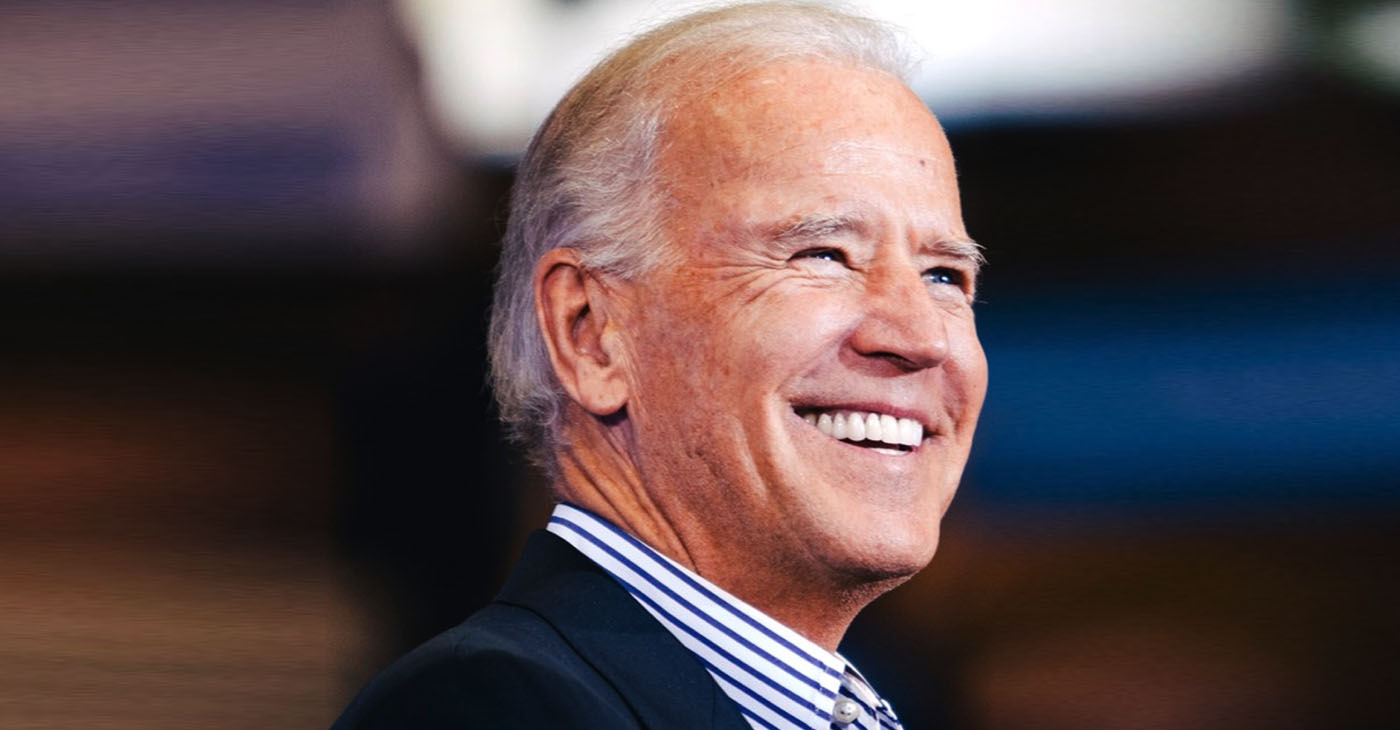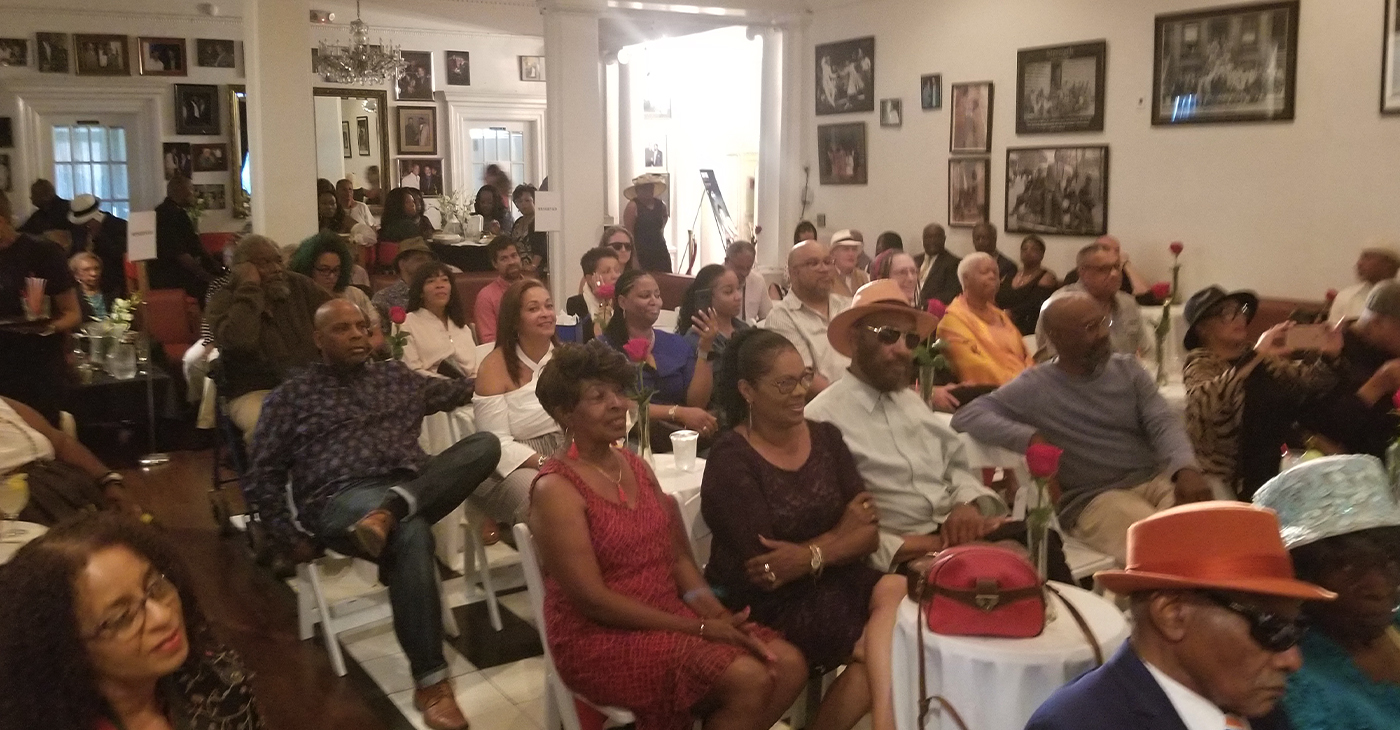Op-Ed
Child Watch: ‘Thank God for Peanut Butter and Jelly’
By Marian Wright Edelman
NNPA Columnist
Kaylyn Sigman is a high school senior with big plans. A star soccer player from a poor rural Appalachian Ohio community who loves calculus and creative writing, she’s college bound this fall and dreams of becoming a middle school special education teacher.
Kaylyn’s overcome a lot to arrive where she is today. Her parents’ relationship was rocky throughout her childhood and they finally divorced when she was 10, leaving Kaylyn’s mother alone to raise her, her younger sister, and two younger brothers who were adopted. Her mother, who suffers from seizures, worked as a labor and delivery nurse but is now on disability. Both brothers have special mental health needs and Kaylyn, a bright student who skipped second grade and was reading at the ninth grade level in third grade, has ADHD, all leading to an ongoing pile of medical appointments and bills.
After her father left, Kaylyn’s family struggled in poverty, moving seven times in four years trying to find an affordable place to stay. Kaylyn’s mother says when they lost their Supplemental Nutrition Assistance Program (SNAP, or food stamps) benefits last year, their family never would have survived the toughest times without PB and J Day, held once a week during the summer months at the children’s school through the local county Children’s Services Agency. They’d come home with enough bread, peanut butter and jelly so each family member could have one sandwich for three meals a day until the next pickup.
Kaylyn is one of five inspiring high school seniors the Children’s Defense Fund-Ohio is honoring this month with a Beat the Odds® award and college scholarship. But millions of other children continue to go hungry every day in our wealthy nation. Some aren’t even lucky enough to be able to count on peanut butter sandwiches to get them through. What do those hungry families do?
SNAP helps feed 21 million children—more than one in 4 children in our nation. SNAP prevents children and families from going hungry, improves overall health, and reduces poverty among families that benefit from it. The extra resources it provides lifted 2.1 million children out of poverty in 2013. It’s the second most effective program for rescuing families from poverty and the most effective program for rescuing families from deep poverty. SNAP doesn’t just keep a child from going to school or bed hungry, but has long-lasting effects. Research shows children with access to food stamps are less likely to experience stunted growth, heart disease, and obesity by age 19, and are nearly 20 percent more likely to complete high school.
And SNAP’s positive effects extend beyond individual children and families to entire communities. During a recession, the impact of SNAP’s economic growth is estimated to be from $1.73 to $1.79 for every dollar of benefits provided. In short, SNAP works. It’s critical that SNAP be improved and expanded, not cut as proposed under the House and Senate Republican proposed budgets.
Although we know cuts to SNAP would mean millions of children might lose benefits and be more likely to go hungry and suffer the long-term negative impacts of hunger, and despite the fact that every major bipartisan budget commission has said that SNAP should not be cut, that’s just what current Republican budget blueprints in the House and Senate are proposing.
Worse, the House budget plan would block grant SNAP and cut its funding by $125 billion—more than a third—from 2021-2025. The Senate budget doesn’t provide enough detail to tell exactly how SNAP would fare, but it cuts non-health entitlement programs serving low- and moderate-income people—which includes SNAP—24 percent.
SNAP benefits now average less than $1.40 a person a meal, and as critical as they are, they’re not enough for many low-income families like Kaylyn’s. In 2013, 54 percent of families receiving SNAP were still food insecure, and overall 1 in 9 children in our nation didn’t have enough to eat. During the recession Congress recognized that SNAP benefits were too low for many and increased the value of the maximum benefit 13.6 percent. The impact was powerful: 831,000 children were kept out of poverty in 2010 as a result of the change. But Congress ended that increase in November 2013. Further slashing SNAP benefits now will cause even more children to go hungry, push families deeper into poverty, and have negative repercussions for the entire nation.
Families like Kaylyn’s need more help, not less—and it’s not too late for our leaders on all sides of the political aisle to do the right thing. In a nation where millions of working families still can’t earn enough to pay rent, pay the bills, and put food on the table at the same time—and where in fiscal year 2013 there were 4.9 million households with no income but SNAP including 1.3 million households with children—relying on the charity of PB and J Day is not a substitute for justice.
Marian Wright Edelman is president of the Children’s Defense Fund whose Leave No Child Behind® mission is to ensure every child a Healthy Start, a Head Start, a Fair Start, a Safe Start and a Moral Start in life and successful passage to adulthood with the help of caring families and communities. For more information go to www.childrensdefense.org.
###
Commentary
Commentary: Racism? Sexism? Ageism Is Worse. Ask Joe Biden
Don’t worry about President Joe Biden’s age or memory. Worry about how he has to confront ageism. Thanks to a certain Asian American special prosecutor named Robert Hur.

By Emil Guillermo
Don’t worry about President Joe Biden’s age or memory.
Worry about how he has to confront ageism. Thanks to a certain Asian American special prosecutor named Robert Hur.
Hur went beyond and below the call of duty in political slander of the President.
Hur’s investigation concluded: there would be no prosecution against Biden for any mishandling of classified documents. So why wasn’t that the big headline last week?
Once it was determined there was not enough evidence to prosecute the president, Hur’s work was done.
Instead, Hur took a year to finish a nearly 400-page report that many mainstream news outlets have since mischaracterized. For example, CNBC’s headline quoted Hur: “Biden ‘willfully’ kept classified materials, had ‘poor memory’: Special counsel.”
Unfortunately, it’s misleading. By how much? On the Just Security website, two prominent law professors found Hur’s report actually described Biden’s statements as “innocent explanations.”
“Unrefuted innocent explanations,” say Prof. Andrew Weissmann and Prof. Ryan Goodman, doesn’t just mean the “case does not meet the standard for criminal prosecution — it means innocence.”
But no one walks away from the mainstream headlines about the report thinking Biden is innocent; Only that he “willfully” retained something classified, and he has a “poor memory.”
None of it adds up to a prosecution. Just a public persecution.
Is this the game being played by Hur, a Trump appointee to the Justice Department, who was named special prosecutor last year by Attorney General Merrick Garland?
Garland must have thought it was a stroke of genius to appoint a Trump Republican in a political year to investigate his Democratic boss. That would be a sign of unity in the fight for truth and justice, right?
It wasn’t.
Hur, the son of South Korean immigrants and a Harvard grad, has said all the right things in public statements: that he’d be “fair, impartial and dispassionate,” and would “follow the facts swiftly and thoroughly, without fear or favor.”
Right.
Or is that right-wing?
Hur’s speculative comments about Biden’s memory were challenged last Sunday by Biden’s personal attorney, Bob Bauer who witnessed Hur’s deposing of Biden.
On CBS’ “Face the Nation,” Bauer called Hur’s report a “shabby piece of work,” that reached the right legal conclusion, but then was loaded with hundreds of pages of “misstatements of facts and totally inappropriate and pejorative comments that are unfounded and not supported by the record.”
Hur appears to have padded the report to buttress his own standing among Republicans. He makes memory a relevant issue when he uses it as an excuse to not prosecute Biden.
With no basis for a legal prosecution, Hur made sure to go for the political kill and let loose the virus that is ageism.
I once thought ageism would unite us all. We may not all be the same race, ethnicity, or gender, but we all fight time and the aging process.
But how naïve I was. Ageism can also inspire division, creating generation gaps, all charged with emotions that fuel a discrimination harder to fight than racism.
Of course, it cuts both ways. Last weekend, Donald Trump, 77, said Russia should be able to do “whatever the hell they want” to NATO members who don’t meet their defense spending targets.
The man who wants to be president again is backing our enemy Putin against our allies.
Is that Trump showing off his anti-democracy bent or his senility?
That’s why ageism has become a dominant theme for both parties and is likely to hang around.
It won’t age well, unless we all know the truth about Hur’s misleading report.
The controversy has thrust Vice President Kamala Harris into the limelight, as she defended Biden and called Hur’s report “clearly politically motivated (and) gratuitous.”
Harris’ detractors have been sniping at her from day one with healthy doses of racism and sexism. Now, you can add ageism to the Republican tool set, a nasty political trifecta, as the GOP continues to hammer Biden and the Democrats with the misleading Hur report.
About the Author
Emil Guillermo is a journalist and commentator. See him on YouTube.com/@emilamok1
Activism
Will New City Leaders End Oakland’s Long-Time Cozy Relationship with Corporate Developers?
Geoffrey Pete’s building at 410 14th St. is a Registered National Resource Building on the State of California Register as well as a contributing building to the Historic Downtown Oakland District on the State of California Register and the National Department of Interior historic registers.

By Ken Epstein
New research, produced by supporters of Geoffrey’s Inner Circle and the Black Arts Movement and Business District, has provided powerful evidence against giving a greenlight to Tidewater Capital’s 40-story luxury apartment building at 1431 Franklin St., inches from owner Geoffrey Pete’s historic venue.
According to the research, which has been shared with Mayor Sheng Thao, arguments in favor of Tidewater Capital’s proposal seem to be based on inaccurate facts, which some believe have their origin among past mayoral administrations and city administrators, the planning commission and city staff who for years allowed corporate development to ravage Oakland’s diverse communities while trying to convince residents that there is no alternative to gentrification.
State does not require project’s approval
Some who support allowing Tidewater’s project to be built have maintained that the state would likely revoke Oakland’s affordable housing funds if the city does not approve this high-end real estate project.
However, this interpretation does not seem to be based on an accurate reading of the law. The state’s “Prohousing Designation Program is what is believed by city officials to prevent Oakland from denying new residential development at the risk of losing their designation” and related funding, according to the research document.
The new research has found instead that “Oakland’s housing element is considered to be in ‘full compliance’ with state law, (and) the city no longer has to worry about losing important revenue, such as the Prohousing Designation Program or triggering rules that could have limited its ability to regulate development.”
The mission statement of the state pro-housing program says it is not designed to force cities to build more high-end housing but is meant to pressure cities and counties that are not building sufficient housing for very low and extremely low-income families. The goal is “creating more affordable homes in places that historically or currently exclude households earning lower incomes and households of color,” the mission statement of the state’s program said.
“This (Tidewater) proposal isn’t remotely connected” to a low-income development and, therefore, would not be impacted by state regulations protecting low-income projects, says the new research.
City failed to seek historical preservation funds
The second major point is that Oakland, unlike neighboring cities, has failed to apply for funding that would have protected its national resource buildings and districts from luxury developers like Tidewater.
Geoffrey Pete’s building at 410 14th St. is a Registered National Resource Building on the State of California Register and a contributing building to the Historic Downtown Oakland District on the State of California Register and the National Department of Interior historic registers.
If Oakland had applied for available grants from the state’s Office of Historic Preservation, it could have received millions of dollars. For example, the city and county of San Francisco applied and received millions of dollars more than six times since 2012.
“The City of Oakland has never even applied for this grant once,” the research said. “Our neighboring and surrounding cities in San Francisco, Berkeley, and Richmond have all applied and been awarded. Just not Oakland.”
“If Oakland had applied and received these funds, then Geoffrey’s Inner Circle, a National Registered Resource Building, would have been protected. There would be zero conversation with Tidewater Capital. This situation would not exist.”
Because the Black Arts Movement & Business District is a registered cultural district, Tidewater Capital’s proposal is in a geographic area with cultural affiliations, and the proposed development will, in fact, cause harm to a cultural resource, Geoffrey’s Inner Circle.
Project designed for luxury housing
The third major point in the research holds that, while the project’s backers claim that many units would be reserved for very low-income residents, the city’s staff report says that only 38 units (10%) out of a total of 381 units would be reserved for low-income residents. Further, there is evidence that none of the units would be available to those whose incomes do not put them among the affluent.
The City of Oakland considers “low-income” to be $112,150 a year for a family of four. What this means is MOST Oakland families do not earn enough to live in the Tidewater Capital’s building. Current data shows that median income for a family of four in Oakland is $85,628, well below the $112,150 that is considered low-income by the city’s unusual standard.
The research shows that the planning commission and city staff’s systematic bias toward high end development has resulted in massive overbuilding of market rate housing, while the city is way behind its goals to build affordable housing.
City statistics show that between 2015 and 2022, the city pledged to build 14,765 units at various income levels. In fact, the city created many more — 18,880 units. Of these, they had pledged to build 4,134 units for residents at the lowest income levels but failed to reach their goal by 1,776 units.
Yet at the same, time, the city built 16,522 high end units, though officials had only pledged 10,631 units for affluent tenants.
“The Oakland Planning Commission catered to developers, such as Tidewater Capital, who solely created luxury housing, so aggressively that they overshot their obligation by 5,891 extra and unnecessary (luxury) units approved,” according to Geoffrey’s supporters’ research.
“Yet low-income housing goals are nearly two thousand units in arrears with no clear remedy or solution at hand,” the research said.
“For the eighth year in a row, Oakland’s Housing Element progress report shows that while the city has permitted an abundance of market rate housing, we are not building enough affordable homes,” said Jeff Levin of East Bay Housing Organizations (EBHO), quoted in Oaklandside.
“The trend in Oakland has been to build high-end units that attract new, higher-income residents,” doing little for low-income residents and Oakland natives, he said.
Project does not fit the landscape
Finally, the real facts show that Tidewater’s market-rate luxury skyscraper, doggedly supported by city staff, does not fit the landscape, dramatically overshadowing surrounding buildings in the downtown Black Arts Movement and Business District.
Tidewater’s design would become the tallest building in Oakland at 413 feet tall (40 stories), taller than the Atlas building at 400 feet, which was built several years ago directly across the street from Geoffrey’s.
The Post gave council members supporting the Tidewater project an opportunity to be interviewed for this article.
Activism
Open Letter to Mayor Thao: Reject Tidewater Development’s Construction Next to Geoffrey’s Inner Circle
Tidewater’s proposed development will harm Geoffrey’s Inner Circle through its very construction, in much the same way that another nearby Black business, Uncle Willie’s Original Bar-B-Que and Fish, was devastated by construction of a 27-story hotel tower adjacent to the historic building that housed this venerated Black business.

Special to The Post
We respectfully request that you vote “No” on the City Council resolution regarding Tidewater Franklin Street development due to be scheduled on the Jan. 16 City Council agenda.
Tidewater’s proposed development will harm Geoffrey’s Inner Circle through its very construction, in much the same way that another nearby Black business, Uncle Willie’s Original Bar-B-Que and Fish, was devastated by the construction of a 27-story hotel tower adjacent to the historic building that housed this venerated Black business.
Further, the Planning Commission made many errors in its approval process, including but not limited to the following:
- Its members acknowledged that they were not even aware that the Black Arts Movement and Business District existed.
- It ignored the fact that Geoffrey’s was entitled to critical protections as a recognized historic resource.
- It ignored the fact that Tidewater had not sought permits or permission to alter Mr. Pete’s building, although such alterations are an integral part of Tidewater’s proposal.
- The Planning Department did not provide, in a timely manner, relevant Public Records Act information requested by the appellant.
In addition, the Planning Department staff has refused to meet with Mr. Geoffrey Pete throughout the appeal process. Sadly, it also appears that the City’s own Department of Race and Equity has been bypassed on a matter with significant equity implications.
It should also be noted that there are dozens of studies indicating that residential construction like Tidewater’s drives out live entertainment venues. Many cities have laws to regulate such potential conflicts.
Geoffrey’s is a critical business to the Oakland community as a whole, and particularly to the African American community.
It has been a place of comfort and camaraderie for thousands of people who have listened to music, held celebrations, funeral repasts, and community meetings. And, Pete hosts an incubator program which has provided a haven for business owners who would not have had success if not housed in his building with below market-rate rent and other amenities, thus enabling them to survive in the ever-more costly downtown area.
The African American population in Oakland has decreased from 47% in the 1980s to 22% currently. A large part of the reason has been City policies which privilege the desires of wealthy developers over the needs of the Black community.
There are questions about housing and other matters which are too lengthy for this letter; we would be happy to discuss all of these with you.
We urge you in the strongest terms to support Geoffrey’s and refuse to vote in support of any measure presented to you that would allow Tidewater’s construction next to Geoffrey’s.
Signers (partial list):
Organizations
Black Women Organized for Political Action, Oakland Berkeley Chapter
Oakland East Bay Democratic Club
Block by Block Organizing Network
John George Democratic Club, Steering Committee
Niagara Movement Democratic Club
Everett and Jones Bar-B-Que
Uncle Willie’s Bar-b-Que and Fish
Joyce Gordon Gallery
Pastors:
Pastor Phyllis Scott, president, Pastors of Oakland
Rev. Dr. Lawrence Van Hook, Community Church
Rev. Dr. Jasper Lowery, International Outreach Ministries
Pastor Cornell Wheeler, Greater Whittington Temple, COGIC
Rev. Dr. Joe Smith, Good Hope MBC
Bishop Brandon Rheems, Center of Hope Community Church
Pastor Daniel Stevens, GreaterNew Life COGIC
Pastor Joseph Thomas, New Hope COGIC
Bishop Joseph Nobles, Dancey Memorial COGIC
Pastor Edwin Brown, Market Street Seventh Day Adventist
Bishop J.E. Watkins, Jack London Square Chapel COGIC
Rev. Kenneth Anderson, Williams Chapel MBC
Rev. Germaine Anderson, People’s MBC
Bishop Marcel Robinson, Perfecting Ministries
Pastor K J Williams, New Beginnings Church
Rev. Dr. Jeremiah Captain, Glad Tidings
Bishop George Matthews, Genesis Worship Center
Rev. Dr. David Franklin, Wings of Love SDA Church
Bishop Anthony Willis, Lily of the Valley Christian Center
Bishop L E Franklin, Starlight Cathedral
Rev. Dr. Sylvester Rutledge, North Oakland MBC
Pastor Raymond Lankford, MSW, Voices of Hope Community Church
Minister Candi Thornton, Arsola House Ministries
Rev. Dr. Joseph Jones, Alpha and Omega Ministries
Superintendent Dan Phillips, Greater Grace Temple, COGIC
Individuals:
Walter Riley, Attorney at Law
Corrina Gould, Tribal chair of Confederated Villages of Lisjan/Ohlone
Zach Norris, Open Society Foundation Fellow
Raymond Bobbitt, Business
Doug Blacksher
Terryn Niles Buxton, business
Lauren Cherry, School Administrator
Allene Warren
Nirali Jani, PhD, Professor of Education
Frankie Ramos, PhD, community organizer
Henry Hitz, Educator
Sheryl Walton, Community Organizer
Vincent Tolliver, Musician
Eleanor Stovall, Educator
Kitty Kelly Epstein, PhD, Professor of Urban Studies, and Education
-

 Activism4 weeks ago
Activism4 weeks agoOakland Post: Week of March 27 – April 2, 2024
-

 #NNPA BlackPress4 weeks ago
#NNPA BlackPress4 weeks agoCOMMENTARY: D.C. Crime Bill Fails to Address Root Causes of Violence and Incarceration
-

 #NNPA BlackPress4 weeks ago
#NNPA BlackPress4 weeks agoFrom Raids to Revelations: The Dark Turn in Sean ‘Diddy’ Combs’ Saga
-

 #NNPA BlackPress4 weeks ago
#NNPA BlackPress4 weeks agoCOMMENTARY: Lady Day and The Lights!
-

 #NNPA BlackPress4 weeks ago
#NNPA BlackPress4 weeks agoMayor, City Council President React to May 31 Closing of Birmingham-Southern College
-

 #NNPA BlackPress4 weeks ago
#NNPA BlackPress4 weeks agoBaltimore Key Bridge Catastrophe: A City’s Heartbreak and a Nation’s Alarm
-

 #NNPA BlackPress4 weeks ago
#NNPA BlackPress4 weeks agoBaltimore’s Key Bridge Struck by Ship, Collapses into Water
-

 #NNPA BlackPress4 weeks ago
#NNPA BlackPress4 weeks agoBeloved Actor and Activist Louis Cameron Gossett Jr. Dies at 87























































Pingback: Blue Coaster33
Pingback: Blue Coaster33